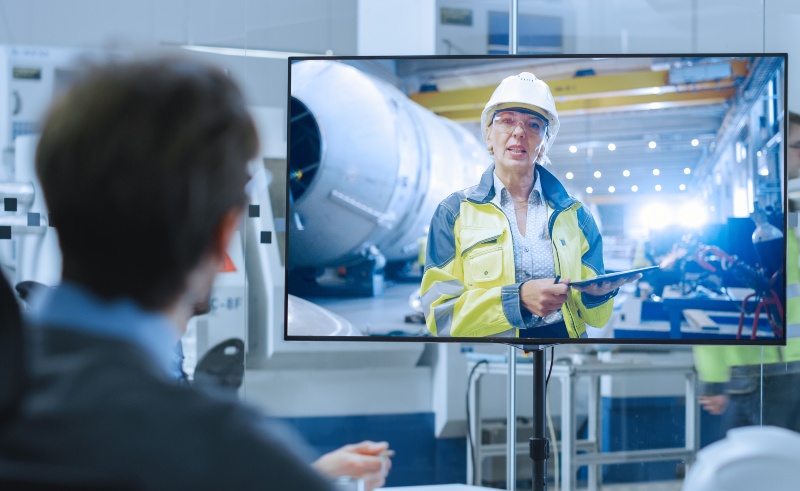Remote auditing: efficient working method with great benefits
Remote working, including remote auditing, has developed rapidly the past few years. The technology for remote auditing already existed and when the Corona pandemic imposed restrictions, it was time to use this technology more widely. Remote auditing has developed further and gained greater acceptance from both auditors and audited parties.
Rapid rise
Lead Auditor Jürgen Harbaum from Kiwa Germany has increasingly implemented remote auditing into his modus operandi: “It was only with the onset of the Corona pandemic that we started to use remote auditing. Before that, it already existed, but the general opinion was that you had to see and inspect all activities at the client's site”, says Jürgen. “The fact that we are so much further ahead with digitalization than we were years ago, has helped make remote auditing much more accepted. The transition went very smoothly, as the necessary technology, secure meeting software that can be used by both parties, was already available. In addition, most organizations do not lack a stable, fast internet connection, necessary for remote audits to be carried out smoothly and efficiently. And of course, business information is nowadays fully available digitally in most organizations. It is no longer often the case that information is only available on paper.”
High efficiency
Jürgen works with many different types of customers, from larger and smaller industrial companies to service providers, ranging from manufacturers of building components to assembly companies and small craftsmen's businesses. The way customers handled the change to remote auditing varied. He tells: “Customers are in general very satisfied with the remote audits as they appreciate the high efficiency. Especially during the Corona pandemic, it was a problem for some companies to comply with hygiene regulations when visitors or auditors are present in their buildings. Customers have noticed that remote auditing does have a lot of advantages, including time savings, travel cost savings and fewer physical travel movements.”
Jürgen gives a nice example of a customer who was already well acquainted with remote working and therefore quickly familiar with remote auditing: ”One of our clients is an engineering firm that carries out environmental planning and control for large infrastructure projects. Many employees of the office had been working decentralized for a long time already. Therefore, they are very familiar with remote tools and were able to contribute very effectively when we first went for a remote audit.”
Limitations of remote audits
Before remote auditing takes place for the first time, it is advisable to get to know each other first, preferably face to face. Jürgen tells: “A remote audit can be perceived less positively if the auditor and the client's contact persons did not know each other personally beforehand. Then it can be difficult to create the necessary atmosphere of trust. In this case it’s good to meet in person first.”
Also, sometimes it is difficult or simply not possible to carry out an audit remotely. Jürgen explains: “Remote audits focus on reviewing processes and procedures, including discussions with the auditees and the inspection of relevant documents and records. These steps can very well take place digitally. When production processes or the operational work of a client's employees cannot be adequately assessed using camera inspections, remote audits reach their limits. For example, construction activities are difficult to assess in remote audits.”
Future of remote auditing
Jürgen believes that remote auditing is here to stay: “Over the past two years, it has become increasingly clear that certain processes and activities can be audited remotely without restrictions. This saves both parties costs and time and provides greater flexibility. Also, it contributes to less travel, thus to environmental and climate protection. However, the prerequisite is always that the technical requirements are met and that there is trust on both sides for remote cooperation. Here at Kiwa, we’ll do everything to build and maintain that trust.”



